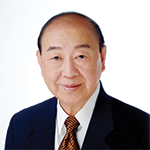It is with great sadness that we report the passing of a giant of international rheumatology, Professor Shunle Chen. He was a friend, colleague, collaborator, visionary leader and inspiration to many rheumatologists in China and the world. Moreover, despite his international stature, he was a warm friend and nurturing mentor to all those who had the pleasure of knowing him.
Shunle Chen, MD, professor of medicine at Renji Hospital Shanghai Jiao Tong University School of Medicine, died on Jan. 23 after a prolonged battle with Alzheimer’s disease. During his nearly 90 years of vibrant life, he made remarkable contributions to clinical science, patient care and professional mentoring, while guiding the development of modern rheumatology in China.
Career Highlights
 Professor Chen was born in 1932 in Shanghai. He received his medical degree from St. John’s Medical School (later known as Shanghai Second Medical University) in 1956. His post-graduate training included residency training at Renji Hospital, Shanghai, and a visiting scholar position in the Department of Rheumatology, Royal Melbourne Hospital, Melbourne University, Australia. He served as a physician-scientist in Renji Hospital for the rest of his life.
Professor Chen was born in 1932 in Shanghai. He received his medical degree from St. John’s Medical School (later known as Shanghai Second Medical University) in 1956. His post-graduate training included residency training at Renji Hospital, Shanghai, and a visiting scholar position in the Department of Rheumatology, Royal Melbourne Hospital, Melbourne University, Australia. He served as a physician-scientist in Renji Hospital for the rest of his life.
In 1979, Professor Chen set up the first rheumatology department in Renji Hospital and served as division head for more than 20 years. From there, he started his groundbreaking work in advancing the development of rheumatology in China. He pioneered the use of autoantibody detection techniques in China. He launched the nation’s first large-scale epidemiological study of major rheumatic diseases, including systemic lupus erythematosus (SLE), osteoarthritis and gout. He reported the prevalence of SLE in the Chinese population for the first time. In 1985, he developed the Shanghai SLE classification criteria, which were validated to be more precise in Chinese lupus patients with early disease state than other criteria.
Professor Chen was committed to improving the well-being of patients with SLE. To achieve this, in the early 1980s, he established a prospective observational cohort of SLE patients; this has become one of the largest SLE cohorts with the most extended follow-up period in China.
By studying this cohort, Professor Chen and his team determined factors impacting patient survival and took steps to address them. Importantly, he recruited a team of gynecologists to improve the pregnancy outcome of SLE patients. He and his team developed guidelines for care of SLE patients during pregnancy after studying the cohort longitudinally that markedly improved pregnancy outcome. After 20 years of study of the longitudinal cohort, he proposed a low-dose regimen of prednisone, methotrexate and chloroquine (PMC) to treat mild to moderate active lupus that has been widely applied to patients in the Asia-Pacific region.
Professor Chen played a leadership role in shaping basic and translational rheumatology research in China. He founded the Shanghai Institute of Rheumatology in 2000. Under his leadership, this institute built up a unique research infrastructure, mainly to explore the molecular pathways in SLE by integrating multiple, cutting-edge biomedical technologies. More importantly, these efforts have effectively promoted the translation of basic findings to novel biomarkers and lupus interventions.
Professor Chen was committed to improving the well-being of patients with SLE.
His team has made many breakthroughs published in high-profile journals. These studies have opened a window to understanding the complicated biological functions resulting from the novel genetic and epigenetic factors underlying SLE and provide great potential for developing novel treatments for lupus patients. The international and national communities have recognized Professor Chen’s outstanding and pioneering works in the field of rheumatology. He was honored as Master by the ACR, as well as the Asia Pacific League of Associations for Rheumatology (APLAR), and received many prestigious awards from the Chinese government.
Dr. Chen also was an active leader and highly regarded colleague in the international rheumatology community. He served as president of APLAR from 2000 to 2002. To boost international communication and cooperation, he successfully hosted the 8th International Congress on SLE and the 11th International Workshop on Autoantibodies and Autoimmunity (IWAA) in Shanghai. All of these meetings were extremely well attended, highly evaluated and served to foster international cooperation among rheumatologists.
Pioneer & Friend
Professor Chen was an outstanding teacher, role model and loyal friend—beloved at Renji Hospital and throughout China and the world. His trainees have become leaders of rheumatology all over China. In many ways, he was the father of modern Chinese rheumatology, training a vibrant cadre of talented rheumatologists committed to excellent patient care based on scientific principles. When he began his work more than 40 years ago, there was minimal rheumatology care in China, but together with his many trainees and international colleagues and his commitment to evidence-based rheumatology, a vigorous specialty has developed, one committed to the principles he espoused.
Everyone who encountered Professor Chen misses him immensely. He was a man of strength, courage, deep wisdom, strong principles and great compassion. He will be remembered as a visionary giant and master of the international rheumatology community, but more importantly as a supportive and sagacious mentor and a warm friend to all who had the pleasure of meeting him. His spirit will live on through the inspiration he has bequeathed to the next generation of rheumatologists to improve the lives of our patients.
Nan Shen, MD, PhD, is a professor of medicine and director of the Shanghai Institute of Rheumatology, chief of the Department of Rheumatology, Renji Hospital, Shanghai Jiao Tong University School of Medicine, China, and co-director of the China–Australia Centre for Personalised Immunology.
Peter E. Lipsky, MD, was the seventh editor in chief of The Journal of Immunology, serving from 1992–97. He is the co-founder, CEO and CMO of AMPEL BioSolutions. The American Association of Immunologists honored him with its Distinguished Service Award in 1998.


